
It has been a long and difficult few months! We’ve all faced challenges in one form or another. But no one in BC has worked harder, or laid more on the line, during the COVID-19 pandemic than frontline workers, who kept the rest of us safe, fed, and warm as we hunkered down at home to do our part. For this summer 2020 story, BCAA Magazine wanted to take the opportunity to celebrate these individuals with five special-edition covers featuring workers from all walks of life. We hope they uplift you, and inspire you to thank the frontline heroes in your own community.
BC’s Heroes of the Frontlines
BCAA Magazine, Summer 2020
This spring, the COVID-19 pandemic changed life as we know it, closing businesses, causing layoffs, halting gatherings and forcing many of us to work from home in an effort to flatten the curve. But not everyone had the option to stay home. Many courageous British Columbians were out there on the frontlines every day, risking their own lives to care for the sick, keep food on our tables, deliver essentials and so much more. We’re truly in awe of these frontline heroes! Here, we celebrate a few of the many who deserve our heartfelt thanks.
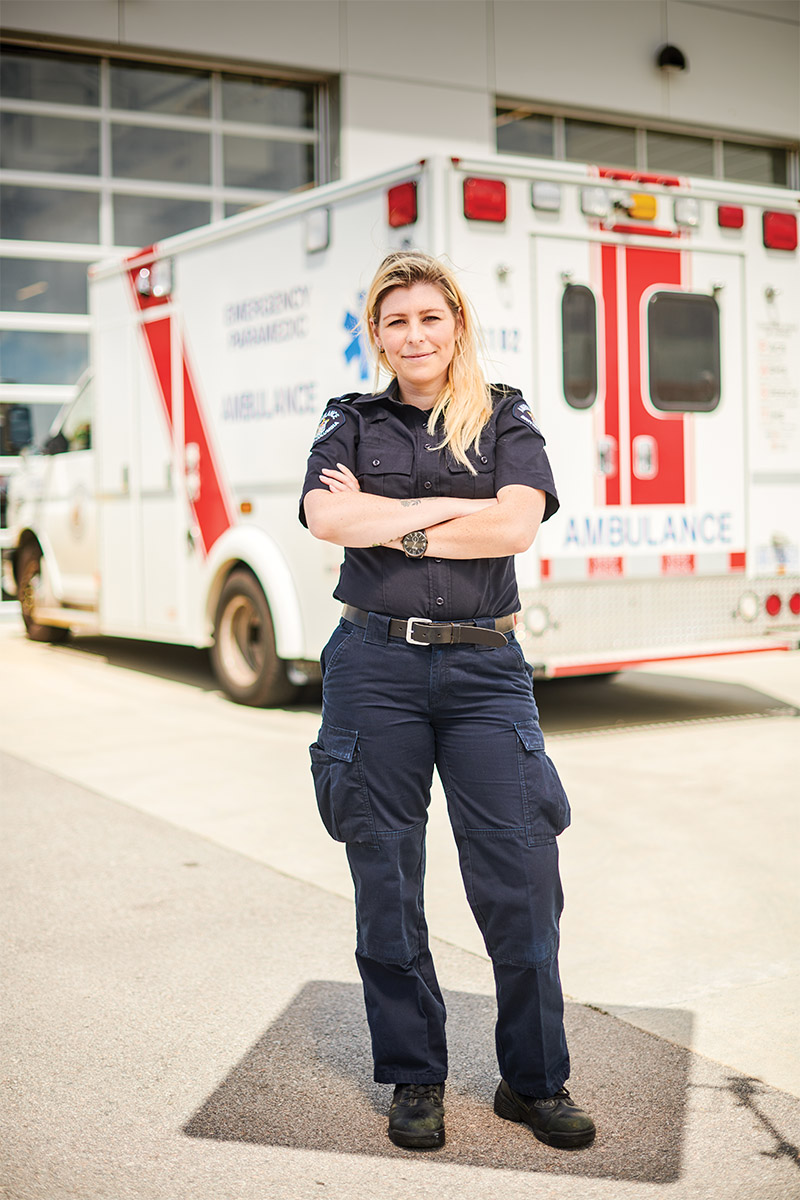
Amy LaycockPrimary Care Paramedic, Vancouver For Amy Laycock, a primary care paramedic with BC Emergency Health Services, everything has changed since the COVID-19 pandemic hit British Columbia. And yet not much has changed at all. It’s a paradox she juggles as she goes about her duties as a first responder in Vancouver. “We’re extra-ready for something unexpected to happen,” she says. With new safety protocols in place, it’s taking them longer than normal to do their job. “We are wearing [personal protective equipment; PPE] into every call now, even if it’s a broken leg,” Laycock says. “We have to don all of our equipment beforehand, and change equipment like gloves throughout the call. We also have to clean everything afterward.” Yet Laycock treats COVID-19-related calls like any other. “I walk in knowing they’re possible COVID calls, but my training kicks in and I focus on what needs to be done. I focus on the patient.” Despite the risks, she says she’s happy to be working and helping, and proud of British Columbians for taking social isolation seriously and successfully flattening the curve. She’s also more confident now, compared to the early days of the pandemic. “At this stage, we’re doing really well at minimizing the risks every step of the way to other people and to healthcare workers.” –Lisa Manfield |
Michael UnsoRegistered Nurse, Vancouver Responsibility. It’s a word Michael Unso uses often when sharing his experiences as a registered nurse working on the frontlines during the COVID-19 pandemic. “Going out of your home to work, you’re a nurse, a frontliner. I think primarily of the welfare of the community,” he says. “Coming back, you’re a family member. Instead of going through the front door, I go through the garage, take my clothes off and shower right away before I even interact with my family. That’s our responsibility.” Originally from the Philippines, Unso has been a registered nurse in Canada for 17 years. He’s spent 10 of those at St. Paul’s Hospital in the acute ward, IV therapy and patient-nurse education. At St. Paul’s, his department is separate from the COVID-19 area, so patients are screened twice before they arrive in his care. Despite this vigilance, there’s always uncertainty. “They may not have symptoms yet,” he says. For the past three years, Unso has also been working at a non-profit primary care clinic in the city’s Downtown Eastside, providing nursing services to some of Vancouver’s most marginalized people. Here, patients are screened for respiratory symptoms and fever before being allowed inside the clinic (there’s a designated room for presumptive COVID-19 cases). “We try our best to follow the provincial protocols and guidelines, given that there aren’t enough PPE supplies there,” he says. “It is what it is. I am very hopeful and I know this, too, shall pass.” When Unso heads home after a day on the frontlines, he revels in the encouragement emanating through the streets at 7 p.m. “That always brings me to tears,” he says. “If I could only shout ‘Thank youuuuuu!’ without sounding crazy, I would.” –Janet Gyenes |
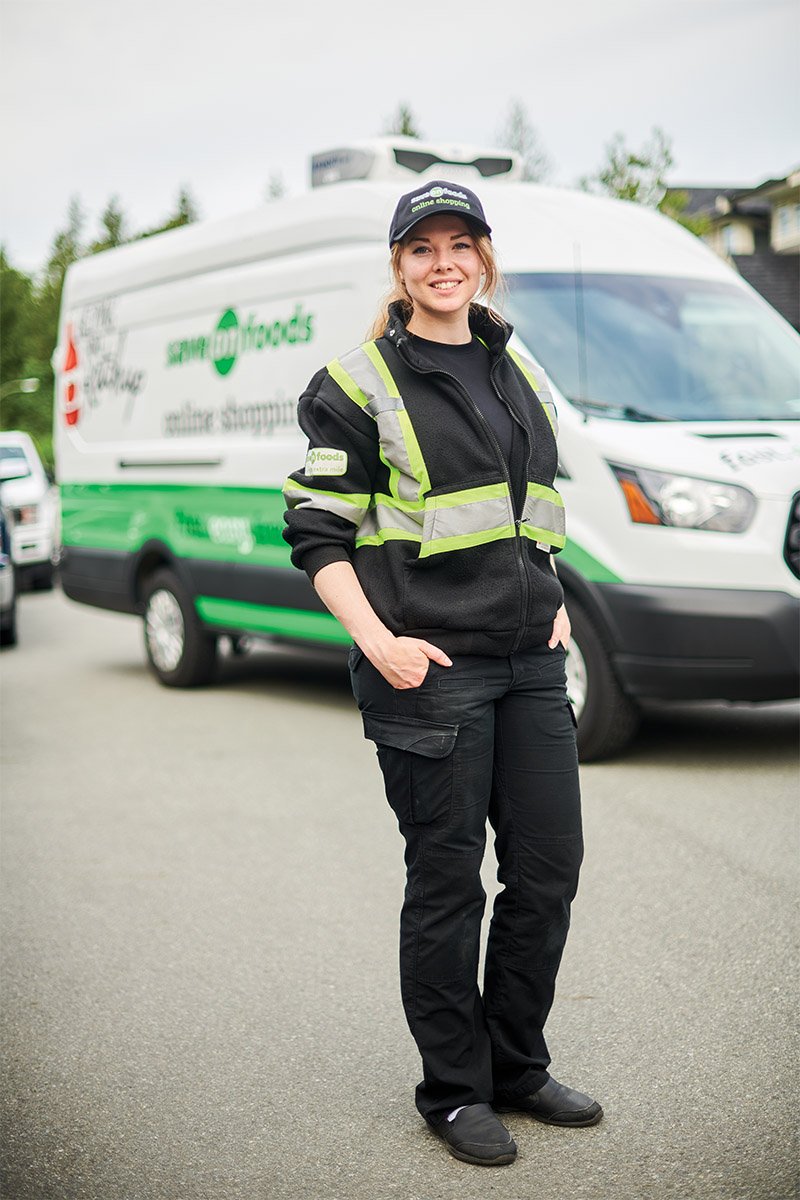
Jessica FaderPersonal Delivery Assistant Team Lead, Save-On-Foods, Abbotsford Online grocery services across BC struggled to cope with the bump in demand caused by the COVID-19 pandemic. Save-On-Foods was no different. But delivery driver Jessica Fader says she’s grateful that her role put her on the frontlines, and serving her community. In turn, the community gave her plenty of love. “I receive kind words and encouragement from our customers daily, thanking us for being out there when they can’t be. It lifts my spirits to see the families waving and giving me big smiles through their windows and doors as I make my deliveries,” she says. |
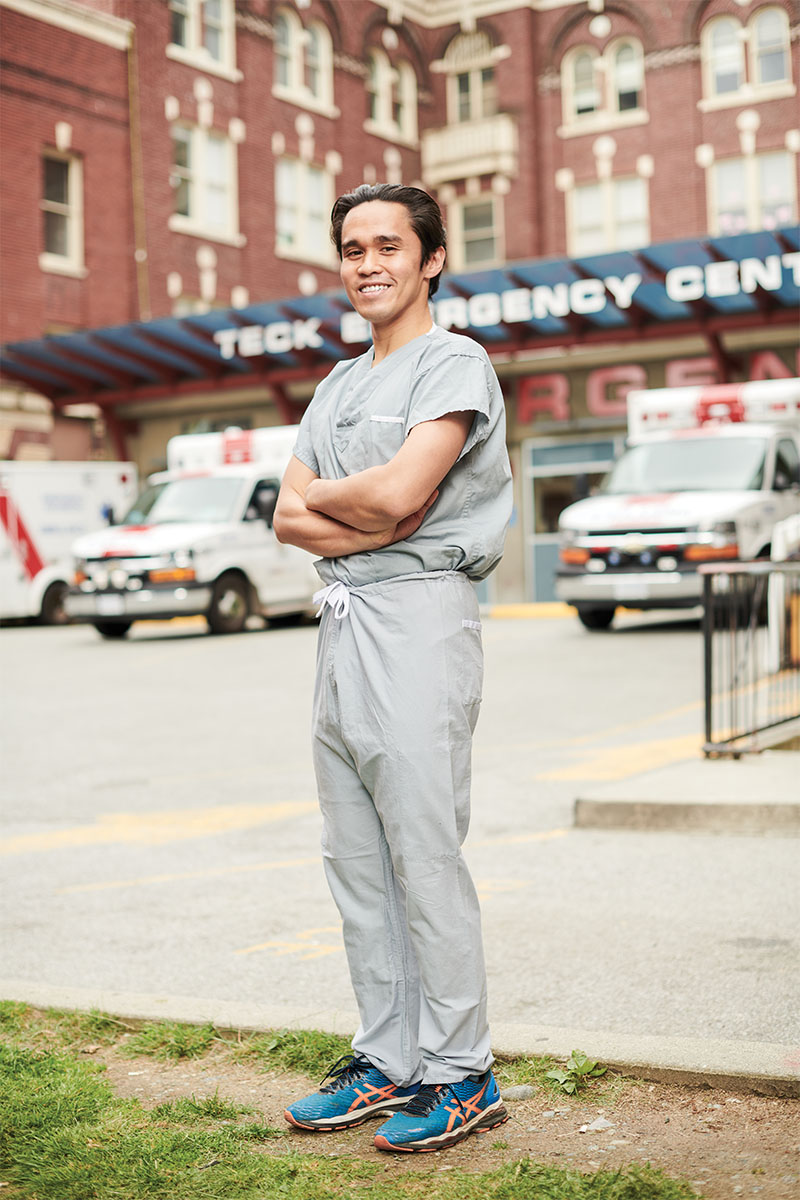
Benjamin CasesEmergency Nurse, Vancouver “This emergency department is a very active crew,” says Benjamin Cases, a nurse at St. Paul’s Hospital in Vancouver. They ski, hike and run together. Right before COVID-19 hit, they even did the UBC Relay Triathlon. This tight-knit camaraderie is serving them well during the pandemic. Cases remembers back to January, when most people thought the virus was like a bad flu, and protocols were changing hourly. “This was a tension that was different than I had ever felt before as an emerg nurse,” he says. Day to day, he screens patients with symptoms like cough, low-grade fever, body aches and pains, isolating them in what is lovingly called “COVID corner.” The PPE standard for nurses is a full gown with surgical cap, mask and goggles or face shield, worn up to 12 hours a day. “It’s hard to function with it and we’re trying to wrap our heads around that we might have to do this for the foreseeable future,” says Cases. To decompress, he and his colleagues hold Zoom dance-athons, and socially distanced meet-ups in Stanley Park. And with any luck, they’ll be training for another relay soon. –Barb Sligl |
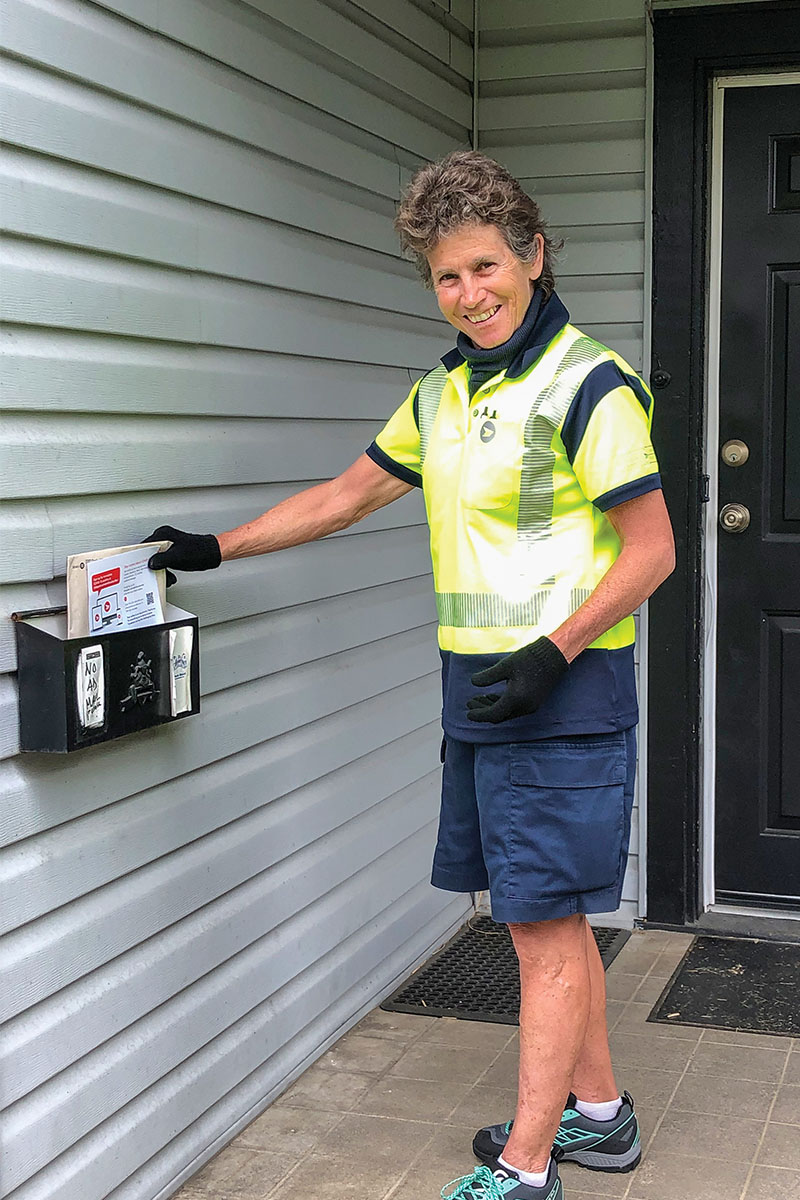
Leslie BlackDelivery Agent, Canada Post, Victoria A 24-year veteran postal carrier, Leslie Black says her customers’ kind words and gestures really helped as she and her colleagues dealt with a huge uptick in parcel loads during the pandemic – caused by people self-isolating and shopping at home. “The added stresses that COVID-19 brought into our work lives were quickly erased when we saw hearts hung in windows and heard people shout out ‘Thank-you!’ after we dropped off their mail,” she says. “Our hands are cracked and sore from harsh cleaning products and we’re tired from the extra workload, but we feel honoured to work and serve the public. This postie feels blessed to do a small part in making the lives of the people I serve a little easier.” |
Dr. Lorne Porayko
ICU Physician, Victoria
To Dr. Lorne Porayko, it’s remarkable how Victorians have stepped up to show their support in the face of the COVID-19 pandemic.
Each day on his way to the Royal Jubilee and Victoria General hospitals, where he’s a critical care physician and anesthesiologist, he drives past a popup tableau honouring essential workers. A chorus of honks from vintage cars (a local car-club salute) join in the nightly cheers to healthcare workers at 7 p.m. Chalk artists draw a daily dose of appreciation on the pavement outside. Local businesses drop off pies, and the University of Victoria is supplying 3D-printed plastic ear guards to alleviate pressure from the straps on masks that healthcare workers now have to wear for entire shifts.
As an ICU physician, Porayko performs tracheal intubation – inserting a breathing tube – on patients who are sick enough to need ventilators. Meticulous PPE protocols are required to prevent contamination, and “something that would normally take us 15, 20 minutes, takes three hours,” says Porayko.
The uncertainty and uneasiness in the hospitals reminds him of the SARS virus, which he had to deal with shortly after medical school in 2003, as well as H1N1 in 2009 – although this is “the scariest of all.”
Yet the province appears to be winning the battle, and he’s hopeful: “I believe that a treatment will be found.” –Barb Sligl
Sue Vossenaar
ICU Charge Nurse, Vancouver
“As a unit, we actually became closer. We became more cohesive, more supportive,” says Sue Vossenaar, a charge nurse in the intensive care unit at Vancouver General Hospital (VGH), with more than 15 years of experience. “We’ve talked more about the emotional side of nursing than we have in the past.”
VGH gets lots of influenza cases, so attending to patients during the early stages of COVID-19 was business as usual – at first. “When this all started, obviously people would come into emergency with some respiratory issues,” says Vossenaar. “If they need a breathing tube – intubation – they come to us. When we got our first [COVID-19] patient, there was a lot of anxiety.”
Self-care is essential to coping. To support ICU staff so they can take moments to recharge, VGH created a time-out space where they can meditate, share stories and talk to a social worker if needed.
Vossenaar can’t help but rave about her close-knit colleagues and managers, for their professionalism, friendship and resolve. “I’ve felt supported through this whole thing,” she says. –Janet Gyenes
FOOD RELIEF ON THE FRONTLINES
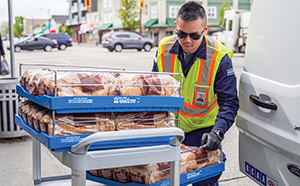
When BCAA Road Assist driver Benny Lin drops off a vanload of food to a United Way Local Love Food Hubs for those in need during COVID-19, he always sees long lines of people waiting.
“The other day, we brought three vehicle loads, and it was all gone within the hour,” he says. Lin and his colleagues deliver to the hubs about three times a week. As of late May their total cargo delivered tallied about 1,350 family food packages, 600 items like eggs, bread and vegetables, 520 cases of granola bars and pastries and 3,800 personal protective equipment (PPE) items.
Kendahl Cardinal coordinates food sourcing, prep and delivery of the program for United Way of the Lower Mainland and feels the same: “We all just want to do what we can, and help where we can. It’s very inspiring.”
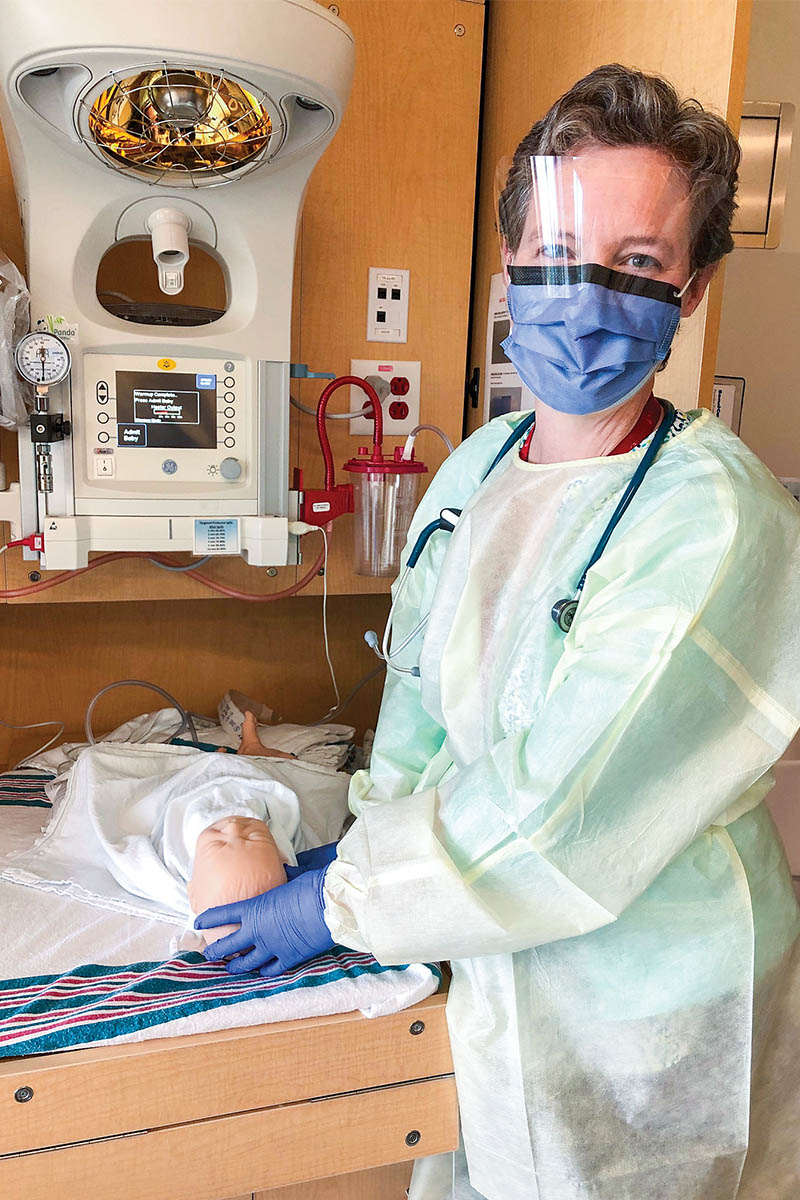
Dr. Jennifer KaskFamily Physician, Campbell River As a forward-thinking family physician, Dr. Jennifer Kask had already begun providing virtual visits before COVID-19 arrived. But in the face of the pandemic, her clinical practice went almost completely online, relying on video and phone appointments. Although she kept seeing her maternity patients in person (“babies continue to be born!”) and people hospitalized with serious conditions. “Patients in the hospital are lonely right now because they no longer have visitors,” she says. “I’ve started to ask for a story from at least one every morning. It has forced me to stop and really be present. I have been humbled by how many people have expressed their gratitude.” |
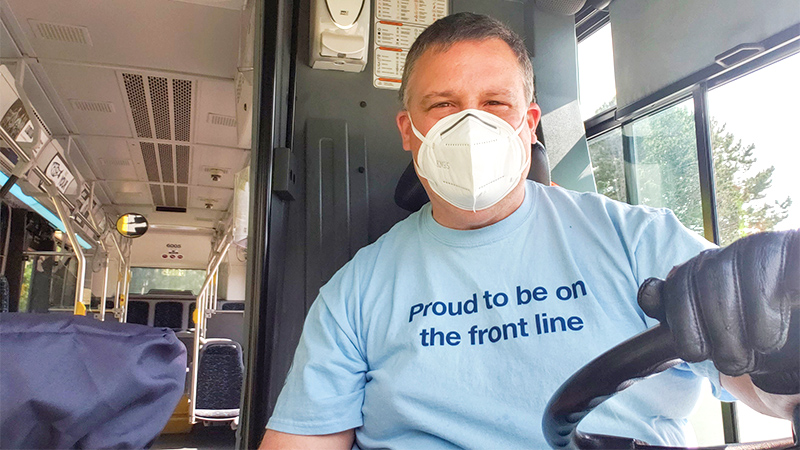
Andrew WaringOperator, BC Transit, Victoria Bus driver Andrew Waring was particularly proud to transport other frontliners to work during the pandemic. “My interactions with healthcare workers and their positive attitude really lifted my spirits,” he says. And while COVID-19 changed many things at work, from safety protocols to sanitation, “Driving in a safe manner hasn’t changed.” Spoken like a true pro. |
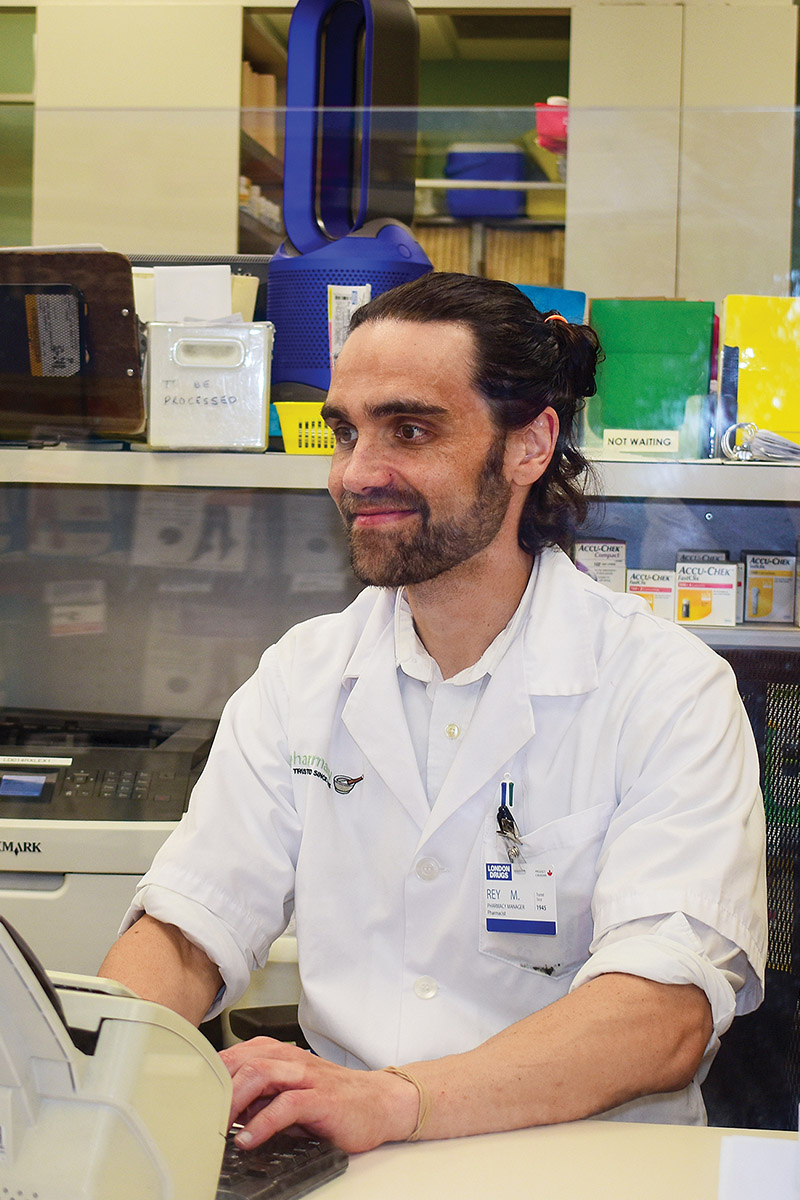
Reynald MarxPharmacist and Pharmacy Manager, London Drugs, Victoria When the pandemic began, pharmacist Reynald Marx saw a “double digit” increase in prescription orders, along with an influx of calls and questions related to COVID-19, plus customers looking for face masks and sanitizer. His team worked long hours to meet the crushing demand. Most customers were positive and encouraging, he says. Some of his regulars even gave him pep talks. “Having them tell me we would get through this made me feel like it wouldn’t be forever, and that what we are doing is important. They made our jobs easier,” he says. |
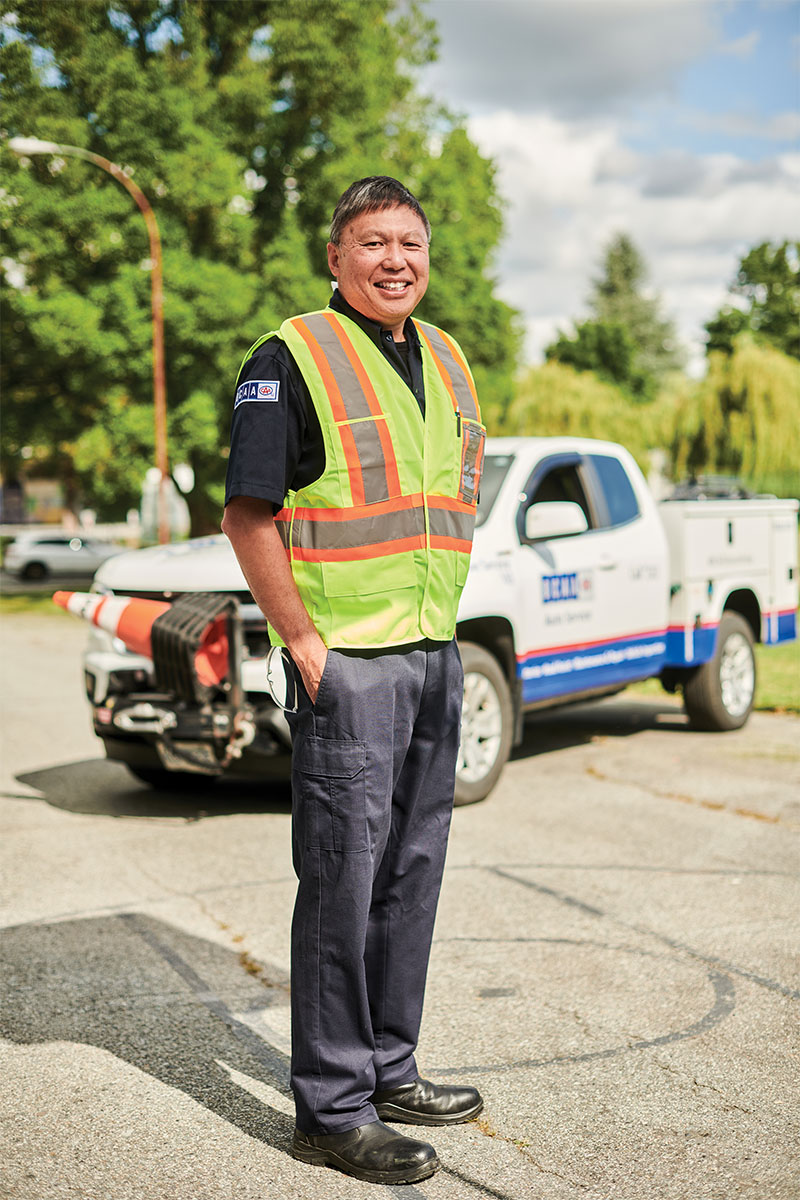
Larry ChowBCAA Road Assist Driver, Vancouver Larry Chow has seen a lot in his 25 years working as a driver for BCAA Road Assist, rescuing Members by the side of the road. But nothing quite like the look of gratitude in the eyes of a stranded motorist during the early days of the pandemic. “At first, everybody was so scared and apprehensive,” he says. But those feelings would quickly dissolve into relief and appreciation when he’d hop out of his truck wearing a mask and gloves. He’d skillfully get them on their way – but not before carefully sanitizing every last surface he touched. “They always thank us for working, and we hear the phrase ‘over and above,’” a lot, he says. |
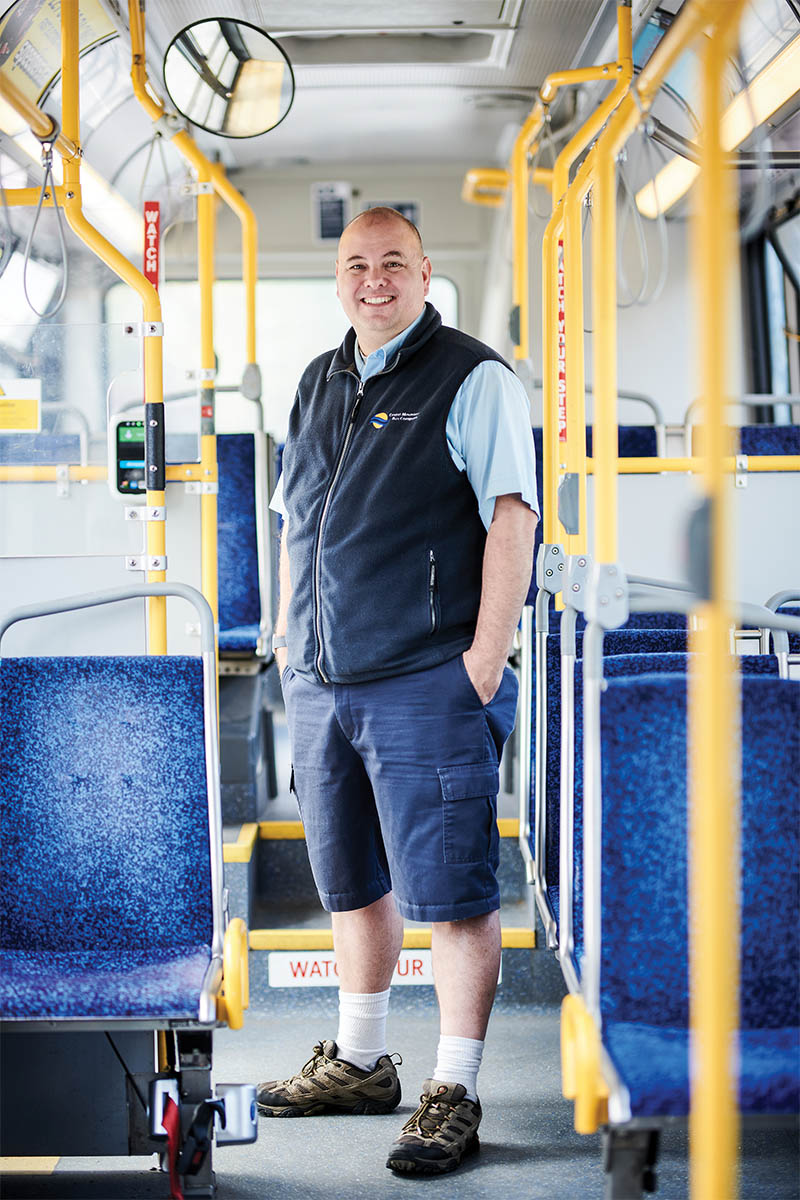
Dan KilbyTransit Operator, Coast Mountain Bus Company, Burnaby For driver Dan Kilby, the biggest challenge of working during the pandemic was taking on lighter loads to allow physical distancing inside buses. Sometimes that meant passing up passengers on the road, which he never likes to do. “You know they need to get somewhere,” he says. “I want so bad to pick them up but I can’t.” And while some riders were frustrated by the changes in service, the majority were vocally grateful. “Daily, I get people saying, ‘thank you for coming to work today’ or ‘thank you for your service.’ It’s a really great feeling to know that I’m doing my part,” he says. |
These are just a few of BC’s frontline workers – in a province full of frontliners who deserve celebration. So don’t forget to personally thank those in your own community.
Photo credits: Adam Blasberg, Leslie Black, Jennifer Kask, Andrew Waring, Reynald Marx







